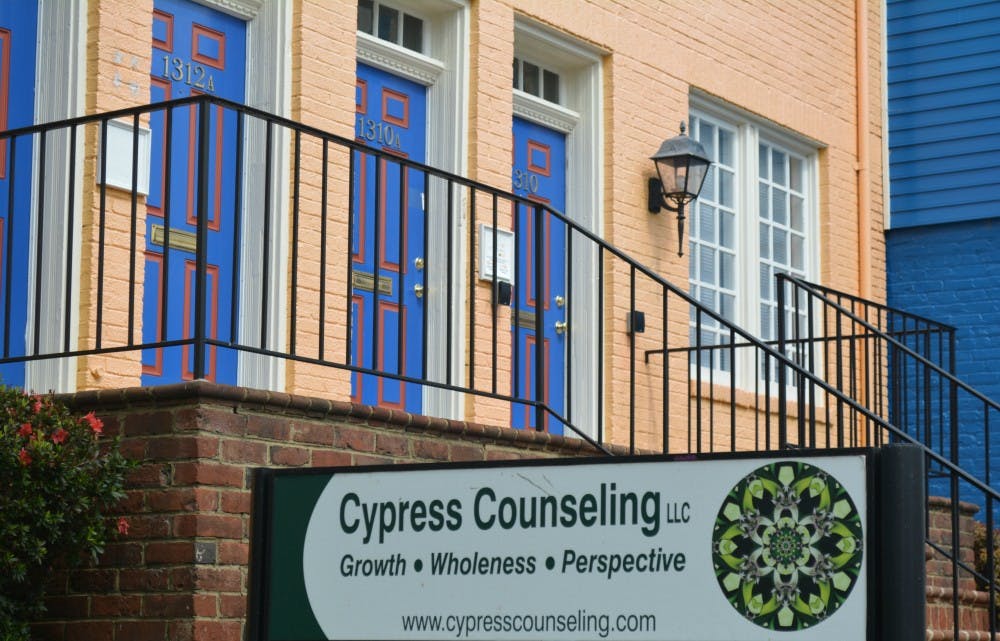Phone call after phone call with no relief. Dozens of voicemails and emails with no results, just a voice on the other end telling you to wait four months to be seen.
As the Counseling and Psychological Services (CAPS) waiting list reached new heights at the beginning of this year, some students weren’t able to receive the mental health care that they needed. But this problem is not unique to the University of Richmond campus.
The wait time for therapy appointments with off-campus providers varies from one week to one month. And the wait time for psychiatric appointments varies from one month to four months. But patients often don’t have that kind of time.
“People don’t make the call to a mental health center when things are starting to get bad,” Karen Anderson Fagan, a licensed professional counselor, said. “They call when things are no longer tolerable and need intervention right now. Many people get frustrated with the process and give up.”
According to data from the National Alliance on Mental Illness, one in four adults experiences mental illness each year. Yet more than half of them do not seek treatment.
“I don't have really bad, bad days, but I'll sometimes have weeks where I'm in super slow motion,” Brandon Jordan, a junior at Metro State University, said. “But I don’t have to have a doctor’s note to act tired alone.”
Many also feel limited by the cost of these mental health services. CAPS is a free resource for students, but off-campus providers are an expensive alternative.
“One of the biggest stressors people face is financial problems,” Anderson Fagan said. “So they’re not likely to feel like they are able to drop $60 to $100 with insurance or over $120 out-of-pocket to see a therapist.”
Some practices charge even more. A first-time psychiatric appointment at Richmond Integrative Psychiatric & Nutrition Services costs $285 and insurance is not accepted.
There’s a catch though — if you’re willing to pay out-of-pocket instead of going through insurance, appointments are usually more readily available. A patient who wants to be seen at Cypress Counseling near Virginia Commonwealth University can be seen within a week, but they will have to pay anywhere from $60 to $90 out-of-pocket. But a patient who wants to be seen at Richmond Creative Counseling, which accepts several insurance providers, has to wait a couple of weeks.
Time is a precious commodity for college students. A therapy appointment usually requires an hour commitment.
“A person can’t even tell their story in ten minutes,” Peter LeViness, the director of CAPS and a licensed psychologist, said. “If you’re doing a ten-minute visit, then you’re just doing a checklist and you’re not really trying to get in context for the person’s life and situation. So I don’t think good work can be done briefly like that. A lot of it is about a therapeutic relationship. The relationship itself is a key part of the healing and the trust and rapport is a key part of the healing.”
Enjoy what you're reading?
Signup for our newsletter
For students going off campus, and particularly students taking a bus or shuttle to an appointment, there is also an hour to two hours of transportation time. It doesn’t help that a majority of offices do not offer evening or weekend hours.
There are several practices along the university’s daily connector bus route. Richmond Creative Counseling and Richmond Integrative Psychiatric & Nutrition Services are both five-minute walks from the Target and Willow Lawn stops.
There’s another pressing issue that can keep a patient from seeking treatment: stigmatization.
“There's still pressure to not have depression or anxiety, and especially for men, it is equated with weakness,” Anderson Fagan said. “This is getting better, but the stigma is still there. If they can't stop and ask for directions on a road trip, there's no way they know how to pick up the phone and call a total stranger and ask for help talking to their wife.”
Shenee McCray, a licensed clinical social worker and adult mental health director at Richmond Behavioral Health Authority, said misconceptions about mental health contributed to the stigma.
“I think that the larger society and community have misunderstandings of mental health and I think that comes from a lack of knowledge and lack of awareness about what is involved in mental health,” she said.
McCray mentioned a nationwide initiative called Mental Health First Aid. It is a program being pushed in Virginia and provides some much-needed education and awareness. It allows people to take an eight-hour class that teaches what to look for if someone is experiencing a mental illness and then how to help them.
Everyone from Michelle Obama to first responders and teachers are trained. Mental Health First Aid is the mental health equivalent of CPR and aims to start conversations about mental health.
“I think that’s where stigma really stems from — people won’t talk about it," Leah Doghramji, who was a research intern with CAPS before graduating last year, said. "If you can have an open conversation about it and talk about it, then it’s not something that you need to hide or needs to be hidden. The key to a lot of things is just knowing about it, understanding it, being accepting of it or learning to be accepting of it.”
Contact reporter Jess Dankenbring at jess.dankenbring@richmond.edu
Support independent student media
You can make a tax-deductible donation by clicking the button below, which takes you to our secure PayPal account. The page is set up to receive contributions in whatever amount you designate. We look forward to using the money we raise to further our mission of providing honest and accurate information to students, faculty, staff, alumni and others in the general public.
Donate Now



